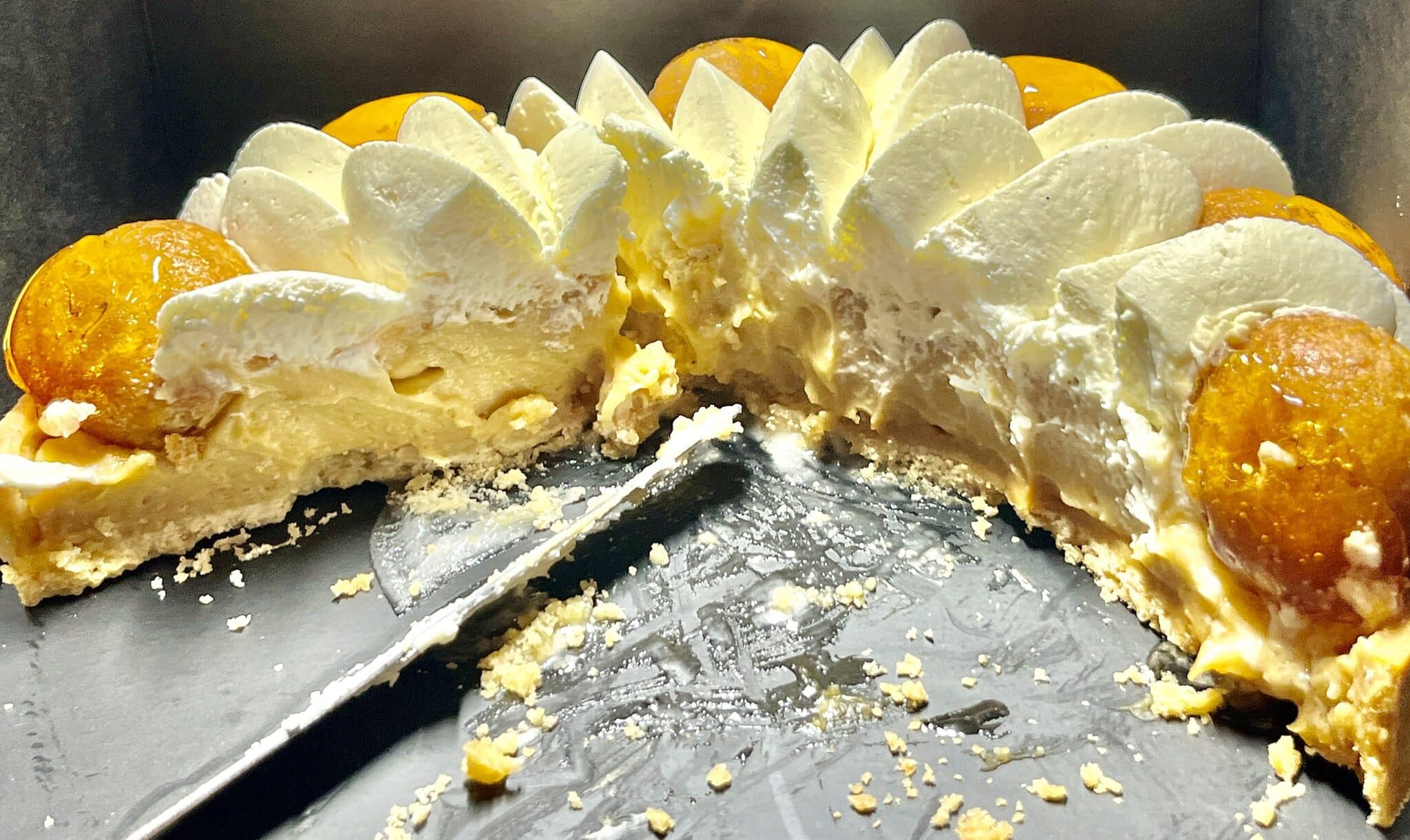For the French, bread is a part of everyday life: a daily source of sustenance. Saint Honoré, from northern France, is recognized for many miracles, but is essentially associated with miracles involving bread. Known in Latin as Honoratus, he is the patron saint of bakers and pastry chefs. The sumptuous Saint-Honoré cake, a classic French treat, was created in his honour in 1857.
St Honoré was a seventh-century Bishop of Amiens, and his connection with bread is not immediately apparent. His parents were affluent, and his childhood was comfortable: his father was a nobleman from Amiens, 120 kilometres north of Paris. With such a wealthy background, Honoré knew little about bread and baking; he probably never even ventured into the kitchen. He was, however, a deeply pious child who and wanted to serve God<strong>.</strong>
Honoré became a priest, and later the sixth Bishop of Amiens – he initially resisted the appointment because he considered himself unworthy of it. He implemented many reforms to strengthen the diocese's spiritual life; although he was not a martyr he led an exemplary life and encouraged the building of new churches and monasteries. But how did he become linked to French bread?
When the news of his episcopal proclamation reached his hometown, Honoré's governess found it hard to believe that her young charge had become a bishop. According to the legend, she swore that she’d only accept the news if the shovel she was using at the time to put the bread in the oven grew roots and transformed into a tree.
She placed it on the floor, where, to her amazement, it promptly sprouted roots and turned into a mulberry tree complete with leaves and flowers<strong>.</strong> A second miracle involving bread once occurred as Honoré elevated the host at Mass. At that moment, he experienced a vision of Christ doing exactly the same.
Just as spectacular was what is described as the "Miracle of the Wheat". Barren fields caused by famine and drought in 1060 created tremendous havoc in the local villages. Bakers could not produce enough bread, and it looked as though whole communities would starve without their most basic food. The Bishop of Amiens brought out his predecessor's relics and led a procession around the city walls; rain fell immediately. St Honoré had answered their prayers: the wheat fields were preserved, millers and bakers could again provide bread, and people could eat.
With these miracles directly related to baking, St Honoré became highly esteemed among bakers and pastry chefs. In 1202 a Parisian baker, Renold Theriens, donated 9 acres of land to build a chapel in his honour. In 1400 the bakers of Paris established their guild there, adopting St Honoré as their patron. The chapel in the Rue Saint-Honoré became one of the most richly-endowed in Paris.
The original church was destroyed, but from humble beginnings this narrow lane eventually extended to the affluent Faubourg St-Honoré in the heart of Paris. Over two kilometres long, it is one of Paris's most exotic and fashionable streets, with luxury boutiques, private mansions and five-star hotels.
In 1847, a bakery on the Rue St-Honoré wanted to pay tribute to the saint by creating a spectacular cake, and so it was that the Chiboust boulangerie produced the famous Gâteau St-Honoré. The original recipe had a ring-shaped brioche base, but it has evolved. These days, most bakers use a puff-pastry base topped with choux buns and whipped cream. <a href="https://thegreatbritishbakeoff.co.uk/recipes/all/prue-leith-gateau-saint-honore/">Prue Leith describes making the recipe as challenging, but a fitting tribute to the patron saint of baking.</a>
Bakeries hold a special place in French national life, and despite the modern variety of food options the French still consume bread regularly. Every spring throughout France, bakers and pastry chefs pay tribute to St-Honoré, celebrating and preserving a rich tradition called <em>La Fête du Pain</em>, a festival focussed on bread and baking. Lasting a week from May 16, it is a time to celebrate the bakers, millers and cereal producers who work together to put bread on French tables.
Meanwhile, the <a href="https://compagnons-du-devoir.com/les-metiers/boulangerie/">Compagnons Boulangers du Devoir,</a> a professional training organisation which makes bread, pastries, and snacks, have a song in his honour. Rougly translated, it reads: "Saint Honoré, under your noble banner / Receive our vows, they are pure and sincere / Be the support of each companion / And do not forget that they will bless your name."
Johan Basile, who runs the <em>maPatisserie</em> blog, has kindly shared his recipe for Gâteau St-Honoré here: <a href="https://mapatisserie.fr/recette/dessert/recette-saint-honore/">Recette du Saint Honoré — maPatisserie.fr</a>



